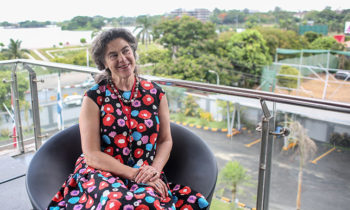 Norway has a long history of promoting political reform in Myanmar. In the following interview, Ambassador to Norway Ms Ann Ollestad, the only woman ambassador in Myanmar, spoke to Mizzima about her government’s priorities in Myanmar.
Norway has a long history of promoting political reform in Myanmar. In the following interview, Ambassador to Norway Ms Ann Ollestad, the only woman ambassador in Myanmar, spoke to Mizzima about her government’s priorities in Myanmar.
What would you say are the main areas of focus for Norway-Myanmar relations?
Norway is a long term partner in its support to Myanmar in its political and economic transition.
Prior to 2008, and at the height of internal conflict and violence in Myanmar, we engaged with local partners to promote political reform – an engagement that has evolved and continues today. Part of this was engaging with exile organisations to promote change from outside of Myanmar. For example, we have been providing support to Democratic Voice of Burma (DVB) since 1992.
In 2012, the Government of Norway developed a strategy for development cooperation with Myanmar. The strategy sets the stage for long-term development cooperation between Myanmar and Norway, particularly in the areas of (1) peace, democracy and reform (2) natural resource management, particularly energy and environment/climate change and (3) responsible business.
As a result of our long-standing commitments, Norway has established unique and trusted relationships with organisations in civil society and other leaders, many of whom are key actors in the transition process.
Norway was the first country the previous Myanmar President Thein Sein visited in Europe back in 2013. Why do you think that was?
Former president U Thein Sein visited Norway in February 2013 and it was his first official visit to Europe.
His visit came a few months after the visit by Daw Aung San Suu Kyi to Oslo in 2012, and later the same year she also participated in the Oslo Forum.
The Norwegian King and Queen visited Myanmar in December 2014, a very successful visit. They met both President U Thein Sein and the leader of opposition Daw Aung San Suu Kyi as well as the parliamentary speakers. A key highlight of the visit was a speech delivered by the King at the Yangon University to a broad audience. This was also where the “David Taw Scholarship” was launched, a scholarship which enables poor ethnic youth to pursue a university education.
A memorandum of understanding, an overall agreement on development cooperation between Myanmar and Norway, was also signed during the visit.
We now have a new government in Myanmar. How do you view their challenges?
As a country in transition no doubt there are challenges ahead of Myanmar and its new government. However, the new government under the leadership of President U Htin Kyaw and the State Counsellor Daw Aung San Suu Kyi have adopted short-term and longer term plans to address these challenges.
As I said Norway has been supporting Myanmar and it transition for many years and we stand ready to continue to help in whatever way we can, based on the priorities and needs of the new government.
Norwegian Deputy Minister of Foreign Affairs, Mr Tore Hattrem, visited Myanmar in February and he reaffirmed Norway’s continuing commitment to support the reform and democratisation process.
Norway has been engaged in Myanmar’s peace process. How do you view progress?
Since the outset, the peace process in Myanmar is home-grown. Norway remains committed to supporting a fully inclusive dialogue, reflecting the diversity of concerns and interests of all Myanmar’s people, that will help create the mutual understanding needed to underpin a just and sustainable peace.
Upon the request of the Myanmar government, Norway established the Myanmar Peace Support Initiative (MPSI) and Peace Support Group (PSG) in 2012. Currently, we are providing funding to the peace process and peace building efforts.
Norway has provided support for the participation of Ethnic Armed Groups (EAOs) in the negotiations for the Nationwide Ceasefire Agreement (NCA) with the Government.
We support the liaison offices of the EAOs and are providing support to the Technical Advisory Teams of some ethnic organisations and also support their public consultation on the peace process.
We are also helping to raise the voices of the people, especially women leaders, working for peace and those living in conflict-affected areas.
Additionally, we are supporting the mother tongue-based multilingual education to vulnerable children in Mon and Kayin states and Taninthayi Region. Included is the support to consultation with the local communities on the peace process.
We are also implementing peace building project providing integrated livelihood support to the internally displaced people in Kroeng Batoi area in Yebyu Township in Taninthayi Region
Norway chaired the Peace Support Group from the start until last year and we are currently a member of PSG which brings together key donor countries as well as United Nations and the World Bank.
I personally witnessed the signing of the Nationwide Ceasefire Agreement, we see it as an important step towards lasting peace. Norway is ready to continue its support to all the parties to make further progress in the peace process. We welcome the commitment by Daw Aung San Suu Kyi and the new government to work towards achieving a lasting peace.
The Women, Peace and Security agenda in Myanmar is part of the broader Peace Process efforts that Norway has actively been supporting and engaged with for several years.
Let me reiterate that Norway is committed to continuing our support to the peace process, by providing financial as well as technical support as identified by the parties to the peace process.
State Counsellor Aung San Suu Kyi looks set to lead coming talks. Will this set the scene for a final agreement?
We support all efforts towards peace and reconciliation in Myanmar and we welcome the commitment by Daw Aung San Suu Kyi to personally take the lead in the peace process. As I said, we are ready to support the process, according to the wishes and needs of the stakeholders.
Telenor is a company that is doing well in Myanmar with its mobile phone outreach. Are other Norwegian companies showing interest in investing in Myanmar?
Telenor is one of the most successful telecom companies working in Myanmar and across the region. It currently has about 15 million subscribers in Myanmar alone. Telenor and other Norwegian companies working in Myanmar place great emphasis on the promotion of responsible business conduct in Myanmar, and we believe Norwegian companies have an important role to play in this. The work Norway supports through organisations such as the Myanmar Centre for Responsible Business is very important in terms of setting international norms and putting ‘best practice’ in the area of responsible business conduct on the agenda.
Business ethics, corporate conduct and environmental sustainability are key principals in this regard. We believe that Norwegian companies entering Myanmar can act as role models by setting high standards, thereby building capacity, promoting women in the workforce and improving the livelihood of the people.
A dynamic, vibrant private sector is critical for long-term, sustainable poverty eradication through creating value and broadly based wealth, tax revenues and productive jobs.
Many Norwegian companies are already working in Myanmar and several other companies express interest in investing here. Norwegian State-owned oil and gas company Statoil is in the process of conducting a feasibility study for offshore oil and gas exploration in Myanmar. A major paint company Jotun is another Norwegian company that has invested in Myanmar, and Yara, a company specialising in the agricultural sector are just starting up.
The governments of Norway and Myanmar have embarked on a dialogue to establish an Oil for Development Program. The program will involve capacity building within different ministries and will help enable Myanmar to utilise its oil reserves in a manner beneficial to its people.
How much trade is there between Norway and Myanmar? What particular sectors are we talking about here?
At this stage, we do not have a huge amount of bilateral trade, but we look forward to establishing stronger trading relations with Myanmar. To this effect, the Myanmar-Norway Business Council was established last year, which aims to facilitate growth in trade and investment between Norway and Myanmar, through a forum for businesses to exchange ideas and experience, and to provide networking opportunities.
Myanmar’s agricultural sector is backwards but holds promise. Has Norway or Norwegian NGOs or companies been involved in providing help in this sector?
Environmental conservation has been a priority for Norwegian development cooperation with Myanmar since the start. We have an institutional cooperation program focusing on building capacity within the Government on biodiversity and protected area management, integrated water resource management and hazardous waste. I would like to highlight our work to help establish a coordinated plan for the preservation of Inle Lake, a plan which includes all stakeholders, including the agricultural sector.
Norway is one of the main donors in helping Myanmar establish a national program for Reducing Emissions from Deforestation and Forest Degradation (REDD) and we provide support to efforts to involve local communities in forest management in Myanmar.
We are also working with the Myanmar government to develop the Myanmar fishery sector. In fact, a Norwegian fishery delegation is due to visit Myanmar this month (19 to 29 May) to consult with the Department of Fisheries on developing a project proposal on Myanmar Norway cooperation in the fisheries and aquaculture sectors. The project will also look into how to stop depletion of fishery resources. Over the past three years a Norwegian research vessel, Dr Fridtjof Nansen, conducted two surveys in Myanmar the territorial waters. The research aims to map marine resources for more sustainable fishing.
I would also like to mention our support to the NGO Proximity Designs, who work to design and deliver affordable, income-boosting products and services to rural families. As I mentioned earlier, the Norwegian company Yara, specialising in fertilisers, are also starting up here in Myanmar.
What would you say have been the highlights personally of your tenure in Myanmar so far?
The three years I served as Ambassador here has been a time of very positive changes in Myanmar. I feel very honoured to have had this opportunity to serve during the period which will perhaps be remembered as the most progressive period in Myanmar’s long journey for democracy.
I personally witnessed the landmark elections last November, which were conducted in an impeccable manner, not least thanks to all the women staffing and operating the polling stations. The patience of the voters and their happiness at being able to cast their vote was awesome.
My visit to Kuauk Kyi in Bago Region where I met internally displaced people (IDP) and learned how desperately they wanted to have peace in their region also made a lasting impression. I have also visited Rakhine State several times and met the people from both communities. I found it especially inspiring that many women are so keen to move on and work together to improve access to health care, education and the possibilities to earn a living for the whole population in the state.
In Myanmar, Norway has an unprecedented level of cooperation with our Nordic neighbours Denmark, Finland and Sweden. Not only do we share common premises and administration for our embassies and diplomatic missions in Yangon in the Nordic House, but we also collaborate in our development cooperation with Myanmar and we share our common Nordic values with the people of Myanmar.
Is there anything else you would like to add?
As a part of its support to Myanmar’s transition, Norway has worked closely with many stakeholders in Myanmar. They include government agencies, CSOs, student and youth organisations. I must say it has been a wonderful experience to work together with these groups. To share knowledge and learn experiences from them. I want to thank, all of them for their excellent cooperation and support.
They have made it clear to me that there are many areas where Norway can learn from Myanmar. I will bring back not only new political knowledge but also key wisdom from the vibrant, multicultural and rich community that amazes and surprises me every day here in Myanmar.
And I sincerely wish and I am confident that Myanmar will achieve its goals for a peaceful, stable, democratic federal union and economically prosperous nation in a foreseeable future.
(mizzima)

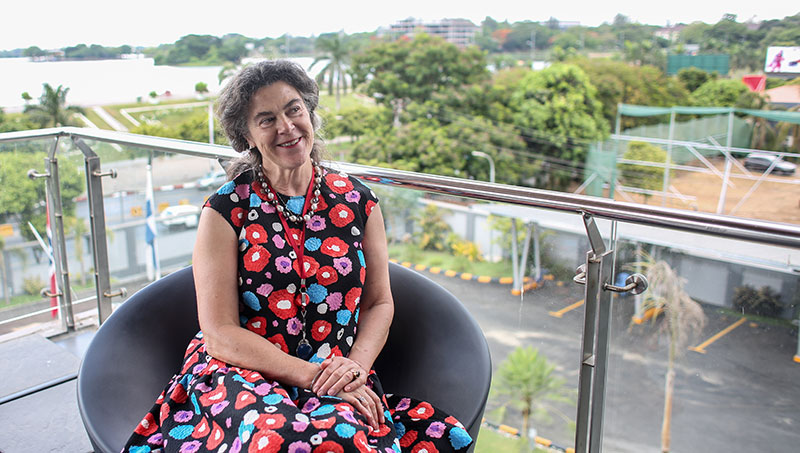
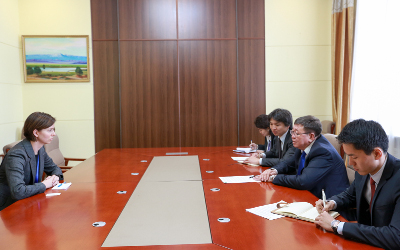
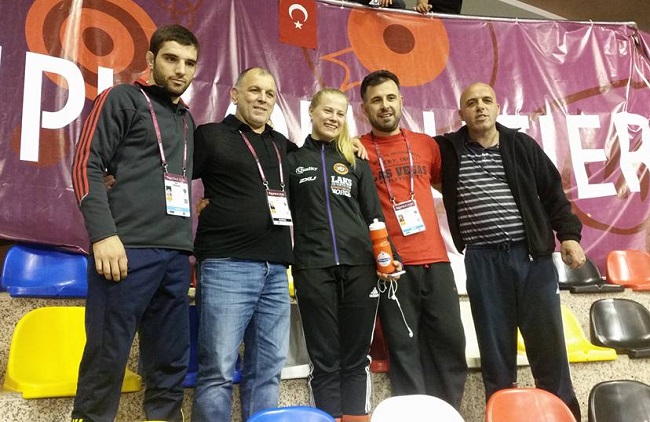
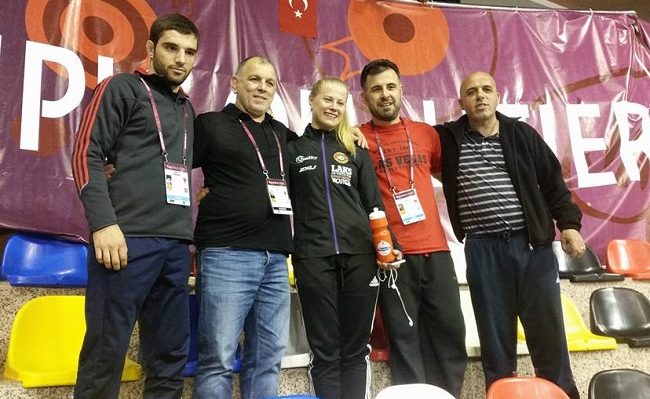 Norwegian wrestler Signe Fidje Marie, who qualified for the Olympics is considering applying for citizenship of one of the Central European countries.
Norwegian wrestler Signe Fidje Marie, who qualified for the Olympics is considering applying for citizenship of one of the Central European countries.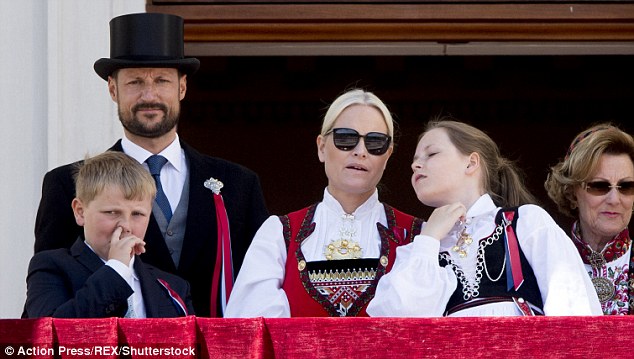
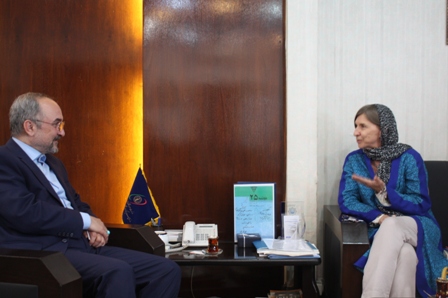
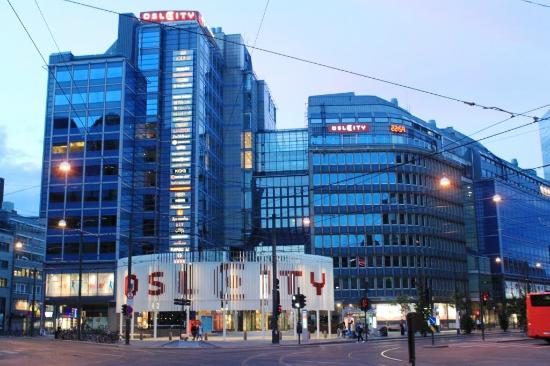
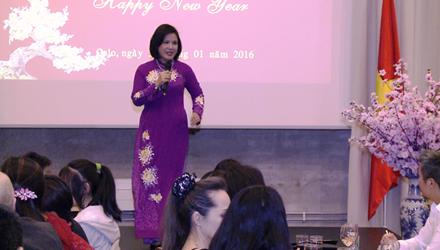

 A study of 20 apps’ terms and conditions by the Norwegian Consumer Council has found that three location-tracking apps may be in breach of European data protection law.
A study of 20 apps’ terms and conditions by the Norwegian Consumer Council has found that three location-tracking apps may be in breach of European data protection law.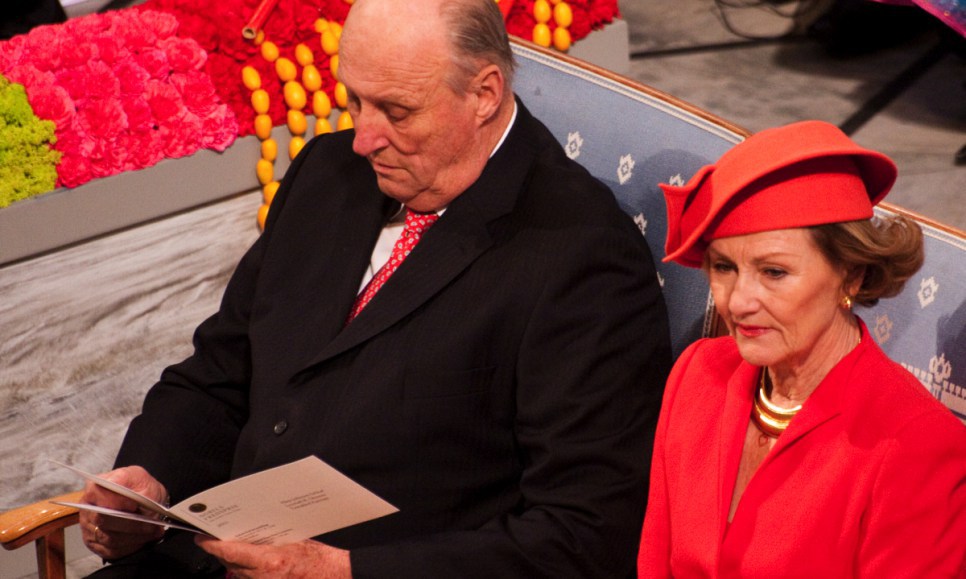
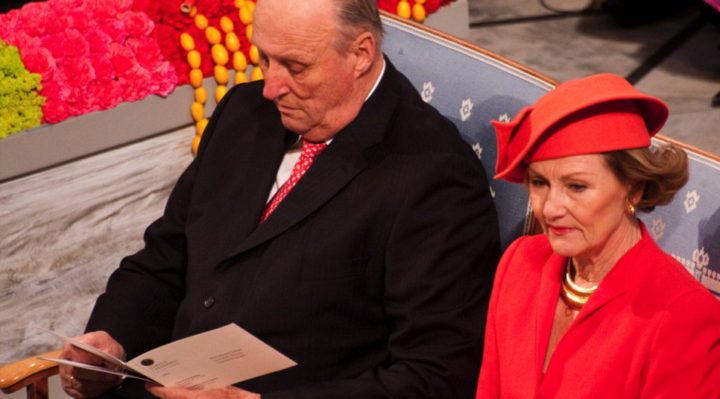 On Thursday, Queen Sonja opened an exhibition of glass art called “Smakebiter” in the Queen Josephine Gallery in the Oscarshall in Bygdøy, Western Norway. Included within the exhibition are exhibits from the Queen’s personal collection of glassware. The Queen commented as she opened the exhibition that she finds glass art fascinating. She said ‘Glass art is a difficult medium. I have tried it myself, and know from experience how fast a piece of glass can turn into a thousand pieces’
On Thursday, Queen Sonja opened an exhibition of glass art called “Smakebiter” in the Queen Josephine Gallery in the Oscarshall in Bygdøy, Western Norway. Included within the exhibition are exhibits from the Queen’s personal collection of glassware. The Queen commented as she opened the exhibition that she finds glass art fascinating. She said ‘Glass art is a difficult medium. I have tried it myself, and know from experience how fast a piece of glass can turn into a thousand pieces’
 A letter was written to the Norwegian Prime Minister, Erna Solberg, by more than 100 attorneys from the United States, abroad, and members of the European Parliament addressing the government’s act of seizing five children from their parents over Christian faith.
A letter was written to the Norwegian Prime Minister, Erna Solberg, by more than 100 attorneys from the United States, abroad, and members of the European Parliament addressing the government’s act of seizing five children from their parents over Christian faith.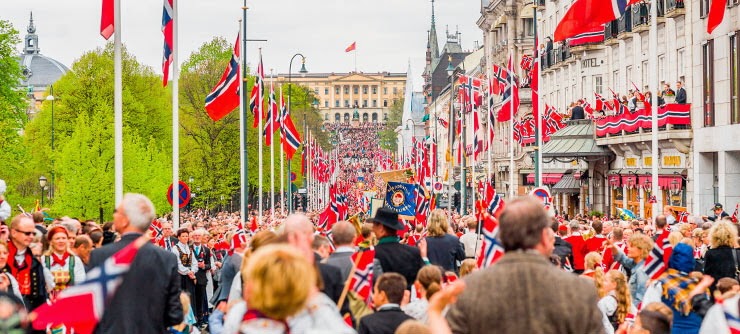
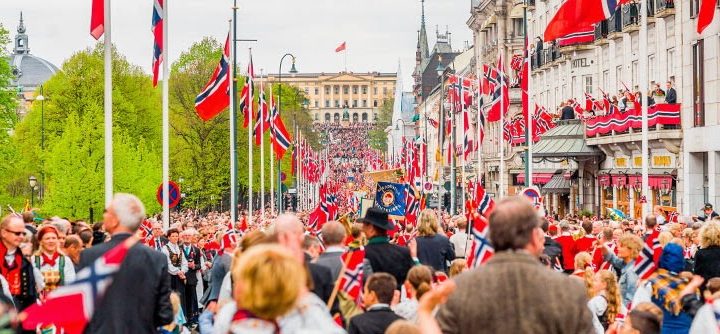
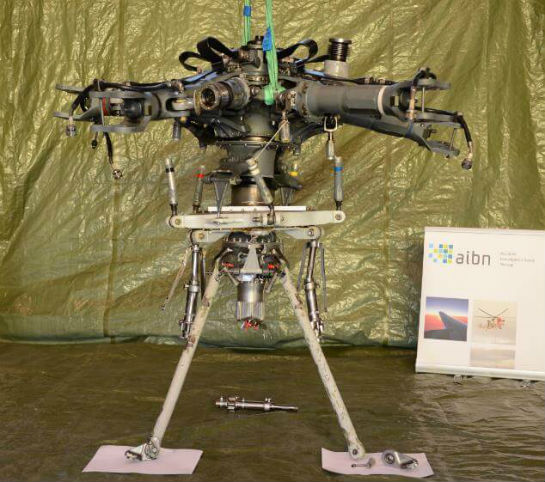
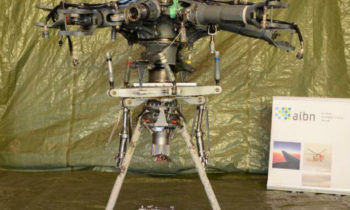 The analysis of the fatal Airbus Helicopters H225 crash near Turøy, Norway, is focusing on the examination of the main rotor head suspension bar assembly, the main gearbox, and the main rotor head (MRH), as investigators attempt to piece together how the aircraft’s MRH and mast suddenly detached in flight.
The analysis of the fatal Airbus Helicopters H225 crash near Turøy, Norway, is focusing on the examination of the main rotor head suspension bar assembly, the main gearbox, and the main rotor head (MRH), as investigators attempt to piece together how the aircraft’s MRH and mast suddenly detached in flight.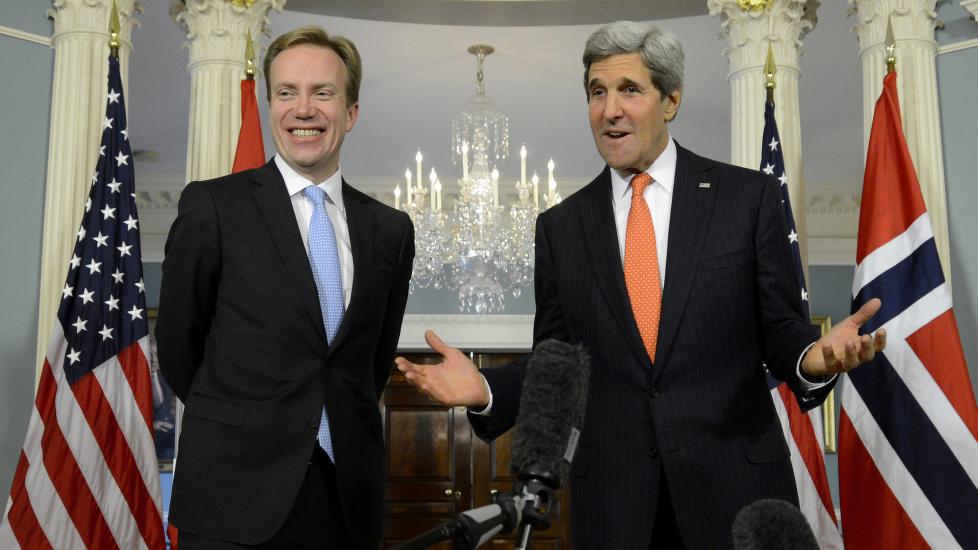
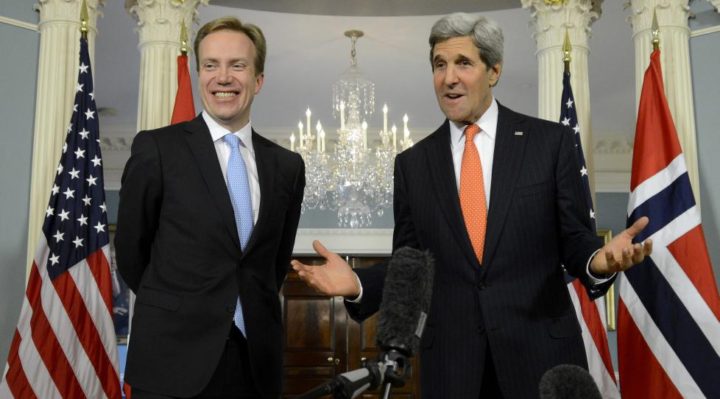 Washington, DC – Secretary of State John Kerry: “On behalf of President Obama and the American people, I extend my heartfelt congratulations to all Norwegians as you observe Constitution Day on May 17.
Washington, DC – Secretary of State John Kerry: “On behalf of President Obama and the American people, I extend my heartfelt congratulations to all Norwegians as you observe Constitution Day on May 17.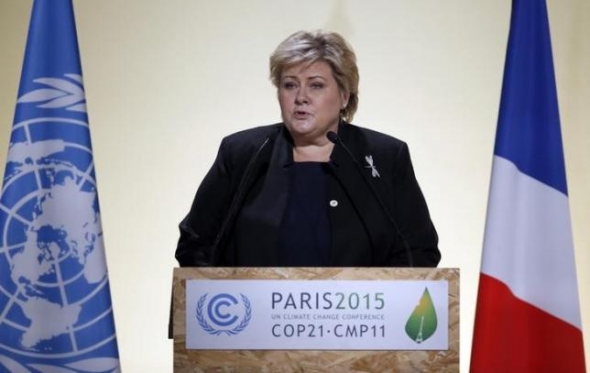
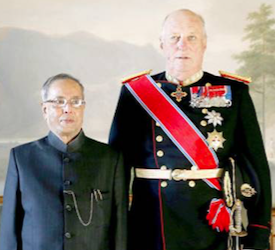
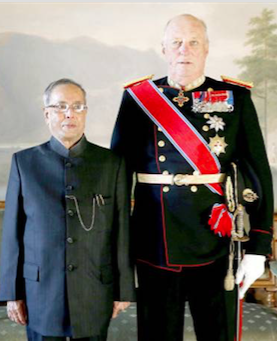 Indian president Pranab Mukherjee on Monday extended his greetings and felicitations to Norwegian King Harald V and his people on their Constitution Day.
Indian president Pranab Mukherjee on Monday extended his greetings and felicitations to Norwegian King Harald V and his people on their Constitution Day.
 As the commander of a Cold War submarine tracking the Soviets, John Jeanette’s dresses were stashed away in a locker reserved for top-secret documents.
As the commander of a Cold War submarine tracking the Soviets, John Jeanette’s dresses were stashed away in a locker reserved for top-secret documents.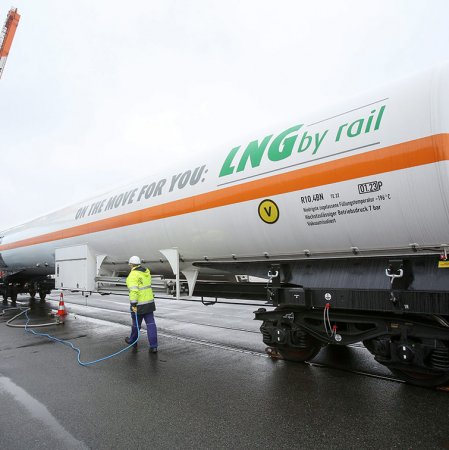
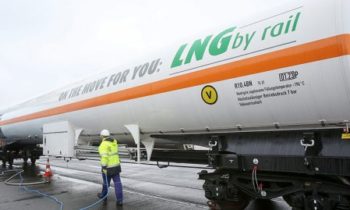 The US has started gas supplies to the European market, which analysts believe cannot pose a threat to traditional suppliers like Russia and Norway. The first tanker with American LNG arrived in Europe in late April. According to an article in Die Welt, “The shipment of LNG from the US to Portugal could accelerate the drop of gas prices in Europe,” Sputnik reported.
The US has started gas supplies to the European market, which analysts believe cannot pose a threat to traditional suppliers like Russia and Norway. The first tanker with American LNG arrived in Europe in late April. According to an article in Die Welt, “The shipment of LNG from the US to Portugal could accelerate the drop of gas prices in Europe,” Sputnik reported.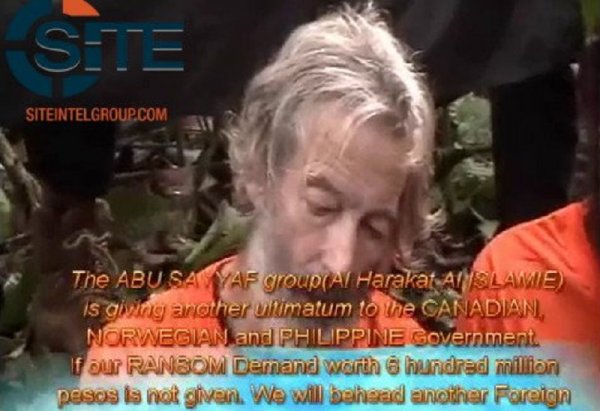
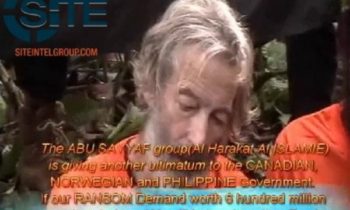 An Islamist group in the Philippines has released a video featuring two Western hostages whom it has threatened to behead if a 600m pesos (£9m, $13m) ransom is not paid by June. Canadian Robert Hall and Norwegian Kjartan Sekkingstad appeared in the clip released by Abu Sayyaf, a group that executed Canadian John Ridsde in April 2016.
An Islamist group in the Philippines has released a video featuring two Western hostages whom it has threatened to behead if a 600m pesos (£9m, $13m) ransom is not paid by June. Canadian Robert Hall and Norwegian Kjartan Sekkingstad appeared in the clip released by Abu Sayyaf, a group that executed Canadian John Ridsde in April 2016.
 The world’s largest sovereign wealth fund intends to take legal action against Volkswagen.
The world’s largest sovereign wealth fund intends to take legal action against Volkswagen.
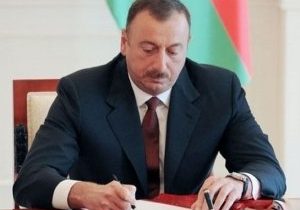 Azerbaijan’s President Ilham Aliyev has congratulated His Majesty King Harald V of Norway on the occasion of his country’s national holiday.
Azerbaijan’s President Ilham Aliyev has congratulated His Majesty King Harald V of Norway on the occasion of his country’s national holiday.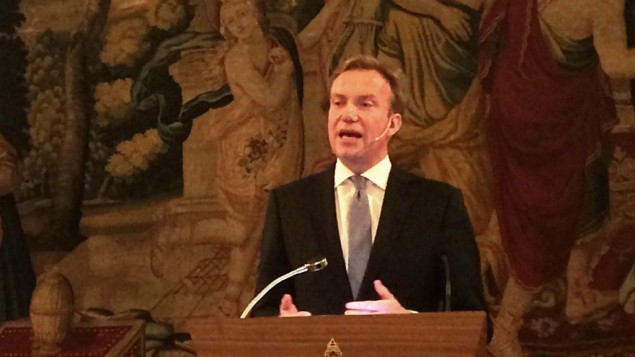
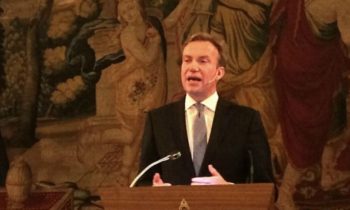 Foreign Ministry Director General Dore Gold thanked Norway on Sunday for stating that it will not transfer money to the Palestinian Authority that will be used to support convicted terrorists or their families.
Foreign Ministry Director General Dore Gold thanked Norway on Sunday for stating that it will not transfer money to the Palestinian Authority that will be used to support convicted terrorists or their families.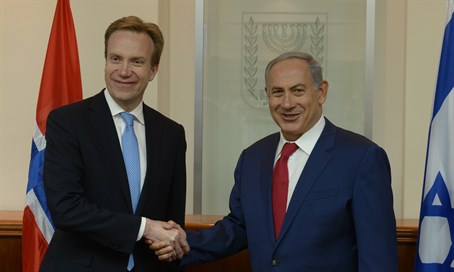
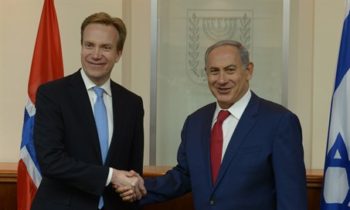 Foreign Ministry Director-General Dr. Dore Gold thanked Norwegian Ambassador Jon Hanssen-Bauer for his country taking Palestinian Authority (PA) Chairman Mahmoud Abbas to task over his use of foreign funds to pay jailed terrorists.
Foreign Ministry Director-General Dr. Dore Gold thanked Norwegian Ambassador Jon Hanssen-Bauer for his country taking Palestinian Authority (PA) Chairman Mahmoud Abbas to task over his use of foreign funds to pay jailed terrorists.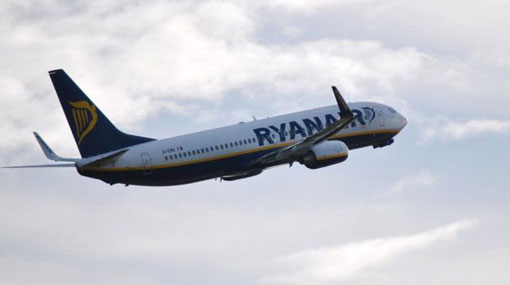
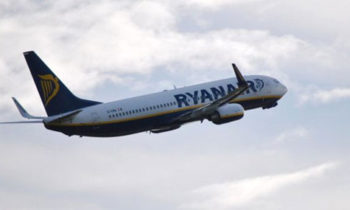 A Ryanair flight from Norway to Manchester has been evacuated before take-off over a bomb scare which police say was due to a misunderstanding.
A Ryanair flight from Norway to Manchester has been evacuated before take-off over a bomb scare which police say was due to a misunderstanding.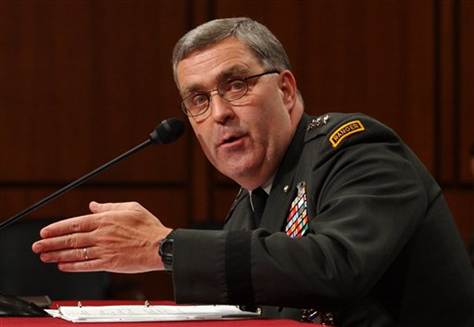
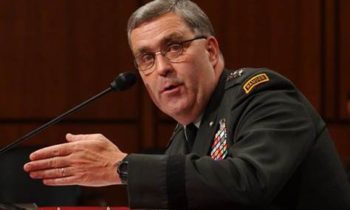 First of all it’s important even as current events draw our attention to the East or to the South of NATO space, to remember that NATO is an Alliance in all directions. So here at the NATO headquarters we often remind ourselves that we are a 360 degree, that is a complete circle when we think about challenges to the Alliance. So the far north is part of that 360 degrees.Thanks to very solid allies like Norway we don’t have a serious security challenge today in the far north. NATO watches very carefully military developments in the Arctic and in particular the modernisation of some Russian capabilities in the Arctic. We watch it carefully because obviously we have Norway as an ally up there, but we have other Arctic allies, and obviously because the access to the North Atlantic space could be challenged from the far north.
First of all it’s important even as current events draw our attention to the East or to the South of NATO space, to remember that NATO is an Alliance in all directions. So here at the NATO headquarters we often remind ourselves that we are a 360 degree, that is a complete circle when we think about challenges to the Alliance. So the far north is part of that 360 degrees.Thanks to very solid allies like Norway we don’t have a serious security challenge today in the far north. NATO watches very carefully military developments in the Arctic and in particular the modernisation of some Russian capabilities in the Arctic. We watch it carefully because obviously we have Norway as an ally up there, but we have other Arctic allies, and obviously because the access to the North Atlantic space could be challenged from the far north.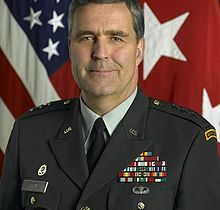 First of all, it’s important to recognize that this Ministerial falls almost exactly five months to the Warsaw Summit in July, and of course in NATO we use these Ministerial sessions as key milestones that tee up decisions for leaders at the Summit and shape the Summit outcomes. So we have three such Ministerials between now and Warsaw. The next two days, so Wednesday and Thursday of this week Secretary of Defense Carter will be here with his 27 Defense Minister colleagues. Then in May, Secretary Kerry will be here with his Foreign Minister friends. And back again in June will be the Defense Ministers. So February, May and June lead to the Summit in Warsaw in July.
First of all, it’s important to recognize that this Ministerial falls almost exactly five months to the Warsaw Summit in July, and of course in NATO we use these Ministerial sessions as key milestones that tee up decisions for leaders at the Summit and shape the Summit outcomes. So we have three such Ministerials between now and Warsaw. The next two days, so Wednesday and Thursday of this week Secretary of Defense Carter will be here with his 27 Defense Minister colleagues. Then in May, Secretary Kerry will be here with his Foreign Minister friends. And back again in June will be the Defense Ministers. So February, May and June lead to the Summit in Warsaw in July.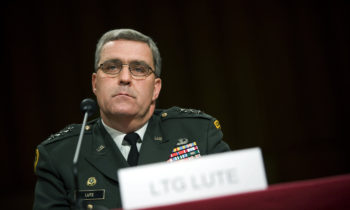
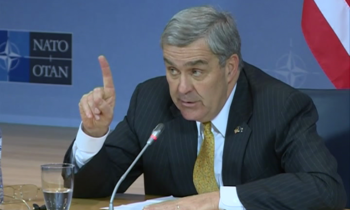 You’ll recall that last summer we announced that we were distributing training equipment across a number of Central and Eastern European allied countries to facilitate American troops coming in, training with our allies, and having the equipment already there prepositioned. So that prepositioning of rather small training sets is underway now. I think there are six or eight countries where we’re working with the host government first of all to secure an invitation. The United States doesn’t put combat equipment on another country’s territory without an invitation. But with that host nation invitation we also then have to negotiate things like the facility where the equipment will be stored securely and so forth. So that process is going on and it’s been going on now for about six or nine months.
You’ll recall that last summer we announced that we were distributing training equipment across a number of Central and Eastern European allied countries to facilitate American troops coming in, training with our allies, and having the equipment already there prepositioned. So that prepositioning of rather small training sets is underway now. I think there are six or eight countries where we’re working with the host government first of all to secure an invitation. The United States doesn’t put combat equipment on another country’s territory without an invitation. But with that host nation invitation we also then have to negotiate things like the facility where the equipment will be stored securely and so forth. So that process is going on and it’s been going on now for about six or nine months.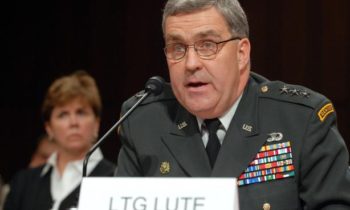 As for the NATO AWACS, there is an ongoing process where NATO is assessing whether it might provide support to the coalition against ISIL, but the forms of that support and the timing and how that might actually happen is still under discussion, and of course for those on the call, AWACS is an airborne essentially air traffic control aircraft from which air campaigns can be commanded and controlled. NATO has this capability. Nations also have this capability, so the United States, for example, has this capability. And there is a request asking NATO to assess whether it could lend some of its capabilities in support of the coalition. That’s the request that is still under consideration and no decision has been taken.
As for the NATO AWACS, there is an ongoing process where NATO is assessing whether it might provide support to the coalition against ISIL, but the forms of that support and the timing and how that might actually happen is still under discussion, and of course for those on the call, AWACS is an airborne essentially air traffic control aircraft from which air campaigns can be commanded and controlled. NATO has this capability. Nations also have this capability, so the United States, for example, has this capability. And there is a request asking NATO to assess whether it could lend some of its capabilities in support of the coalition. That’s the request that is still under consideration and no decision has been taken.
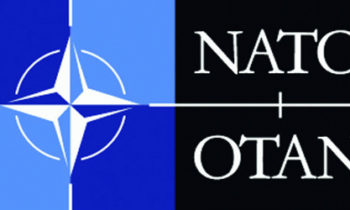 US Deputy Secretary of Defense Bob Work met with Norway’s State Secretary for Defense Oystein Bo in Washington, DC to discuss bilateral security cooperation, a spokesperson for Work, Navy Lt. Cmdr. Courtney Hillson, said in a statement on Thursday, APA reports quoting Sputnik. “During their meeting, Work and Bo discussed US-Norwegian defense cooperation efforts and highlighted the Marine Corps Prepositioning equipment in Norway,” the statement noted.The two officials also addressed the upcoming NATO Summit in Warsaw in July and the security situation in Europe and the Middle East.
US Deputy Secretary of Defense Bob Work met with Norway’s State Secretary for Defense Oystein Bo in Washington, DC to discuss bilateral security cooperation, a spokesperson for Work, Navy Lt. Cmdr. Courtney Hillson, said in a statement on Thursday, APA reports quoting Sputnik. “During their meeting, Work and Bo discussed US-Norwegian defense cooperation efforts and highlighted the Marine Corps Prepositioning equipment in Norway,” the statement noted.The two officials also addressed the upcoming NATO Summit in Warsaw in July and the security situation in Europe and the Middle East.